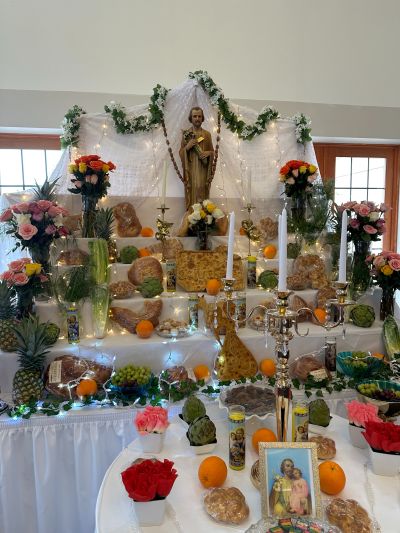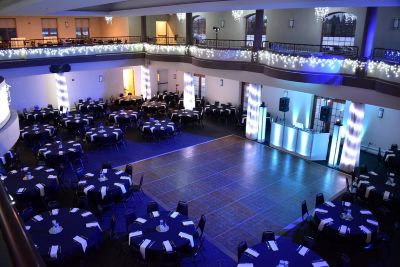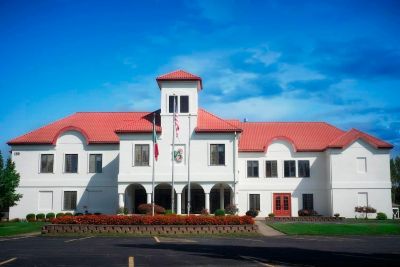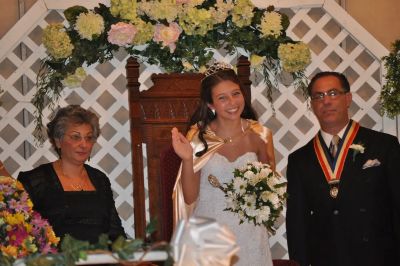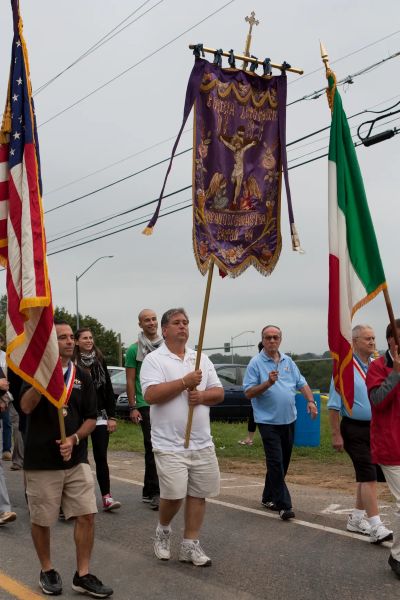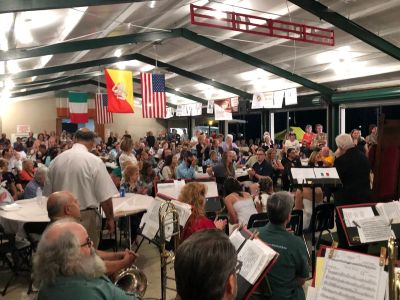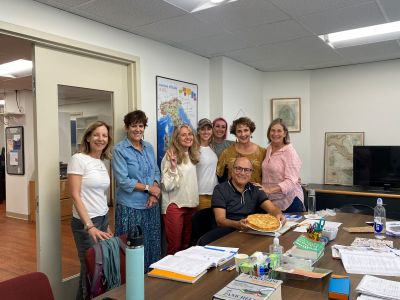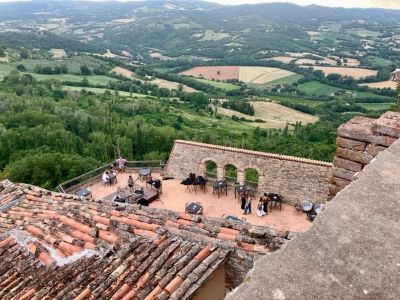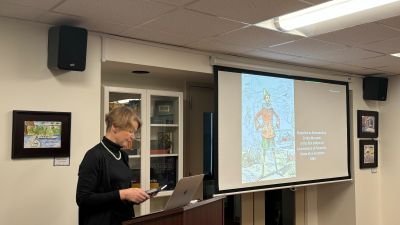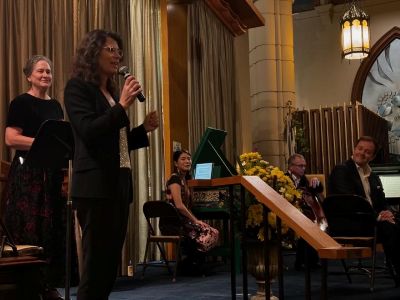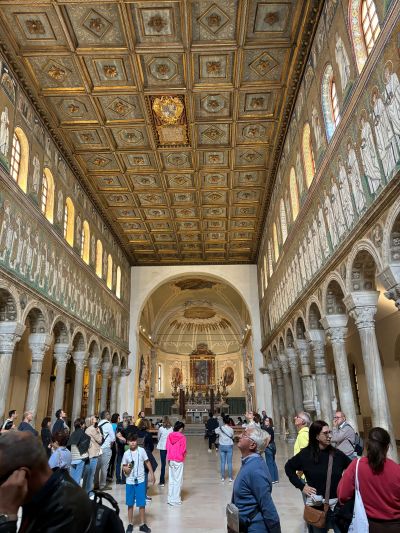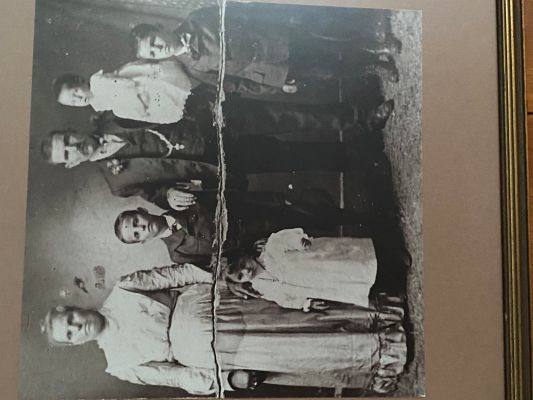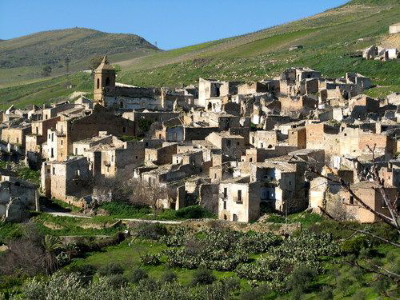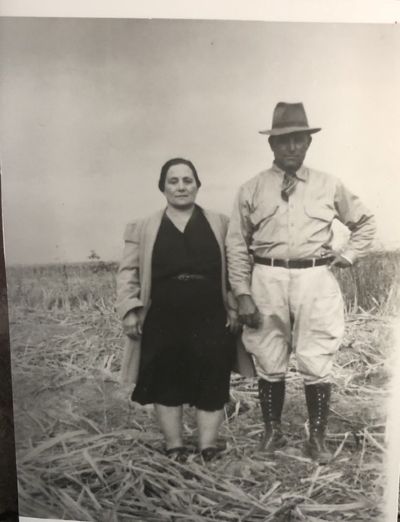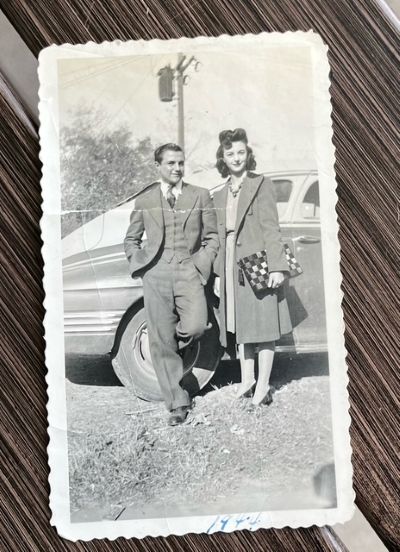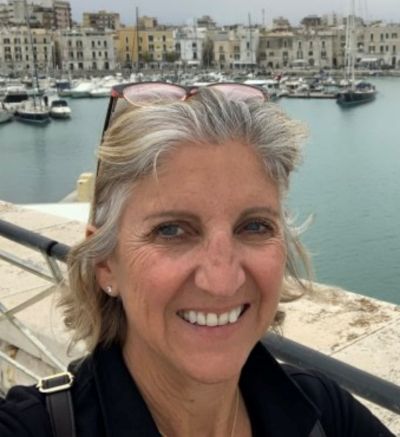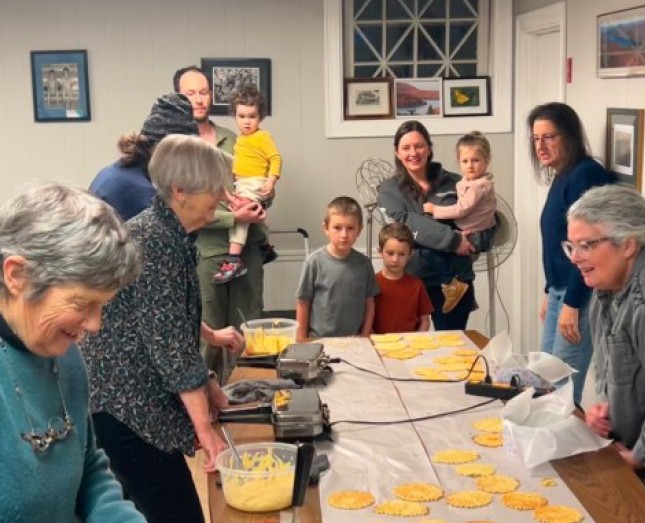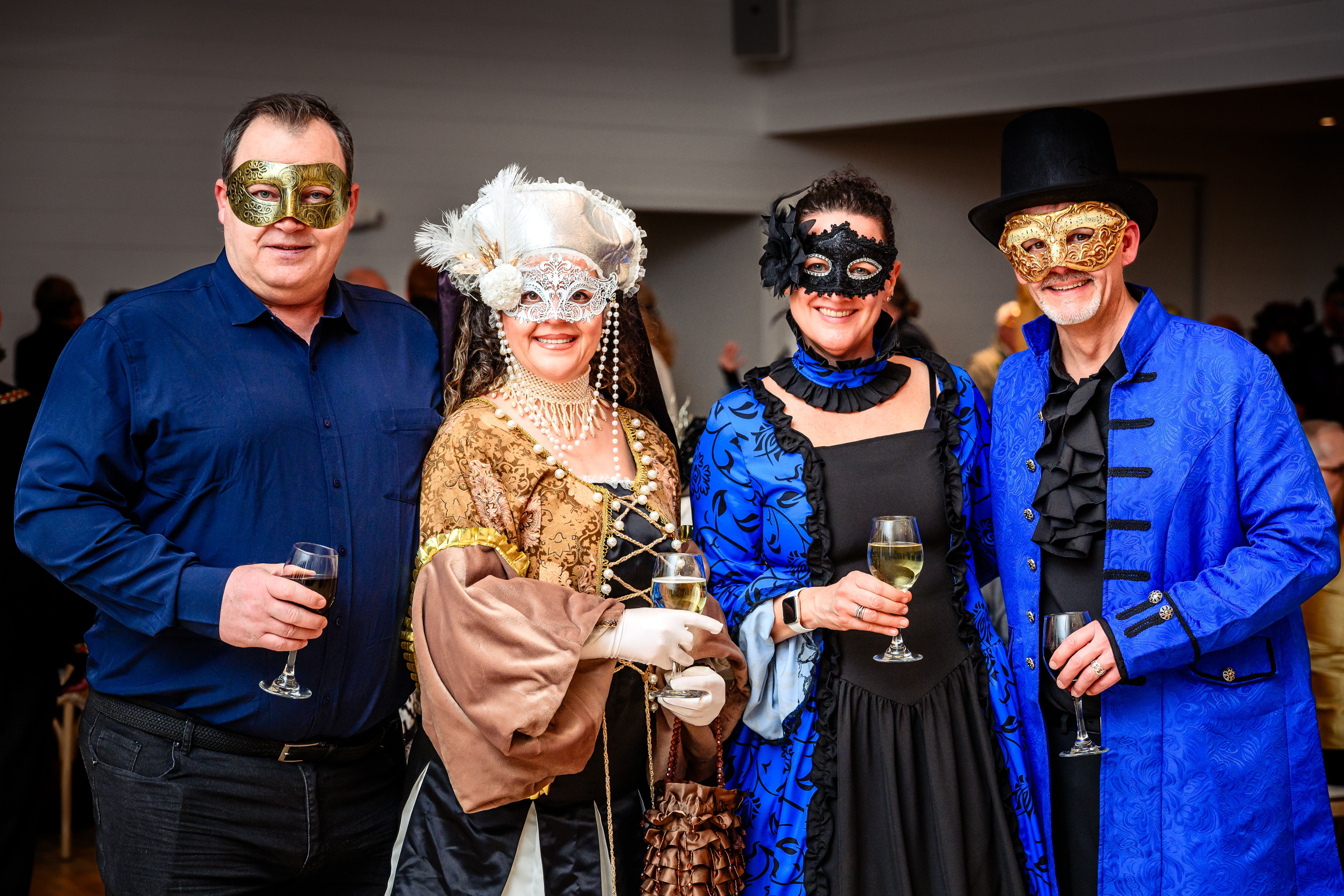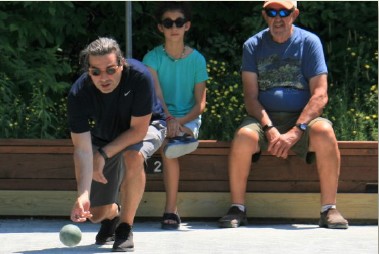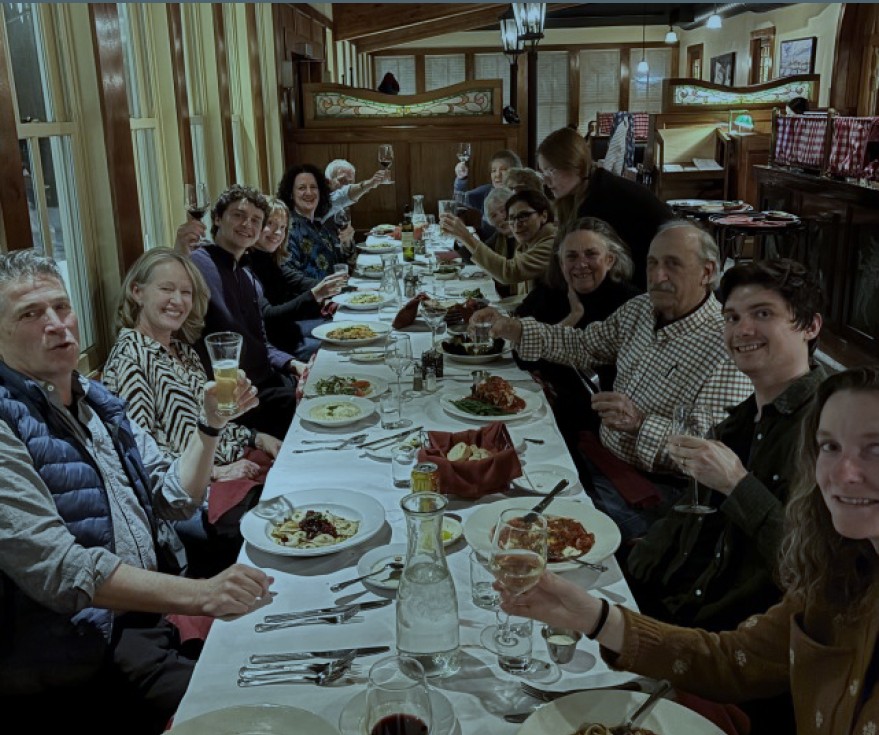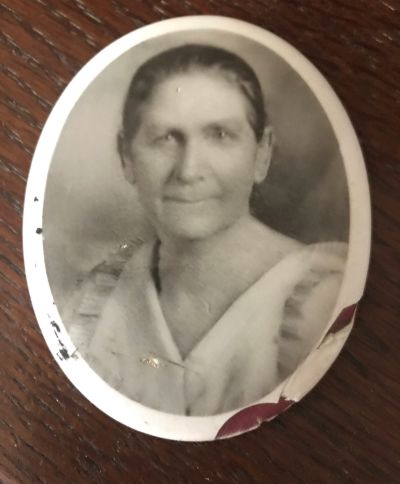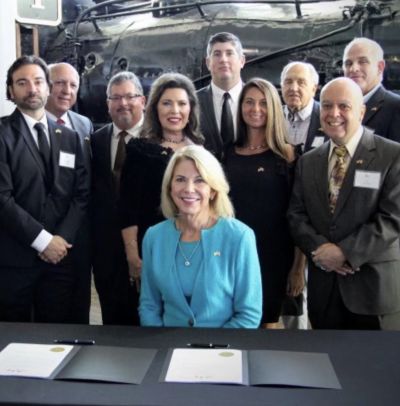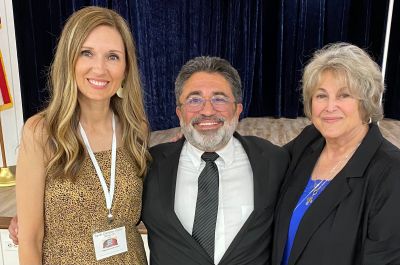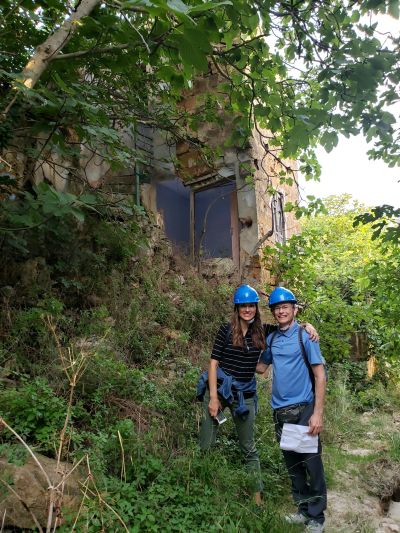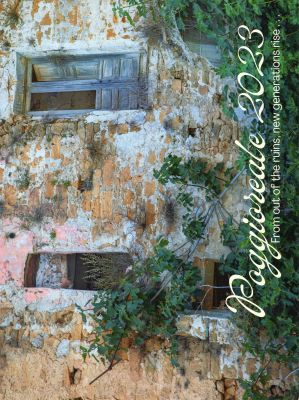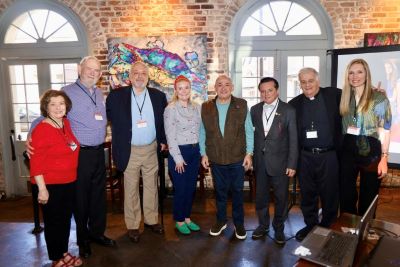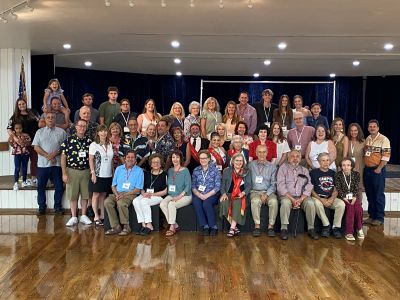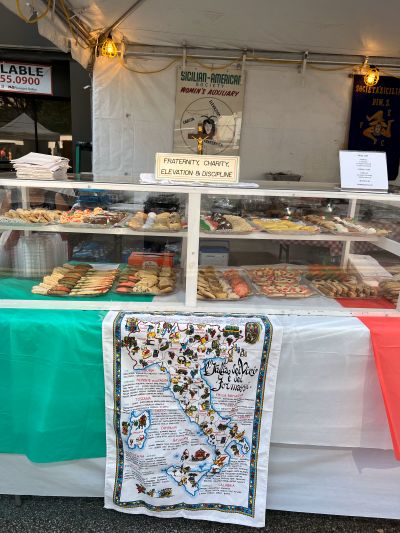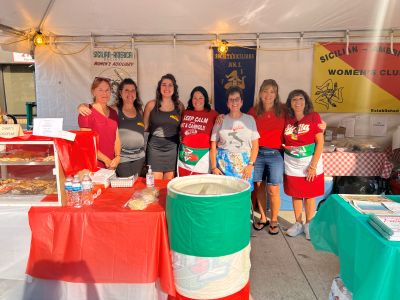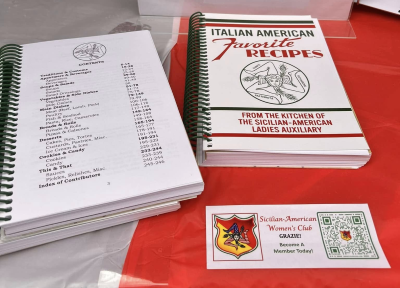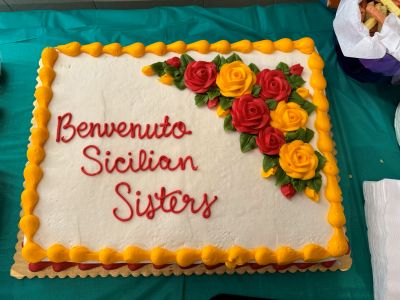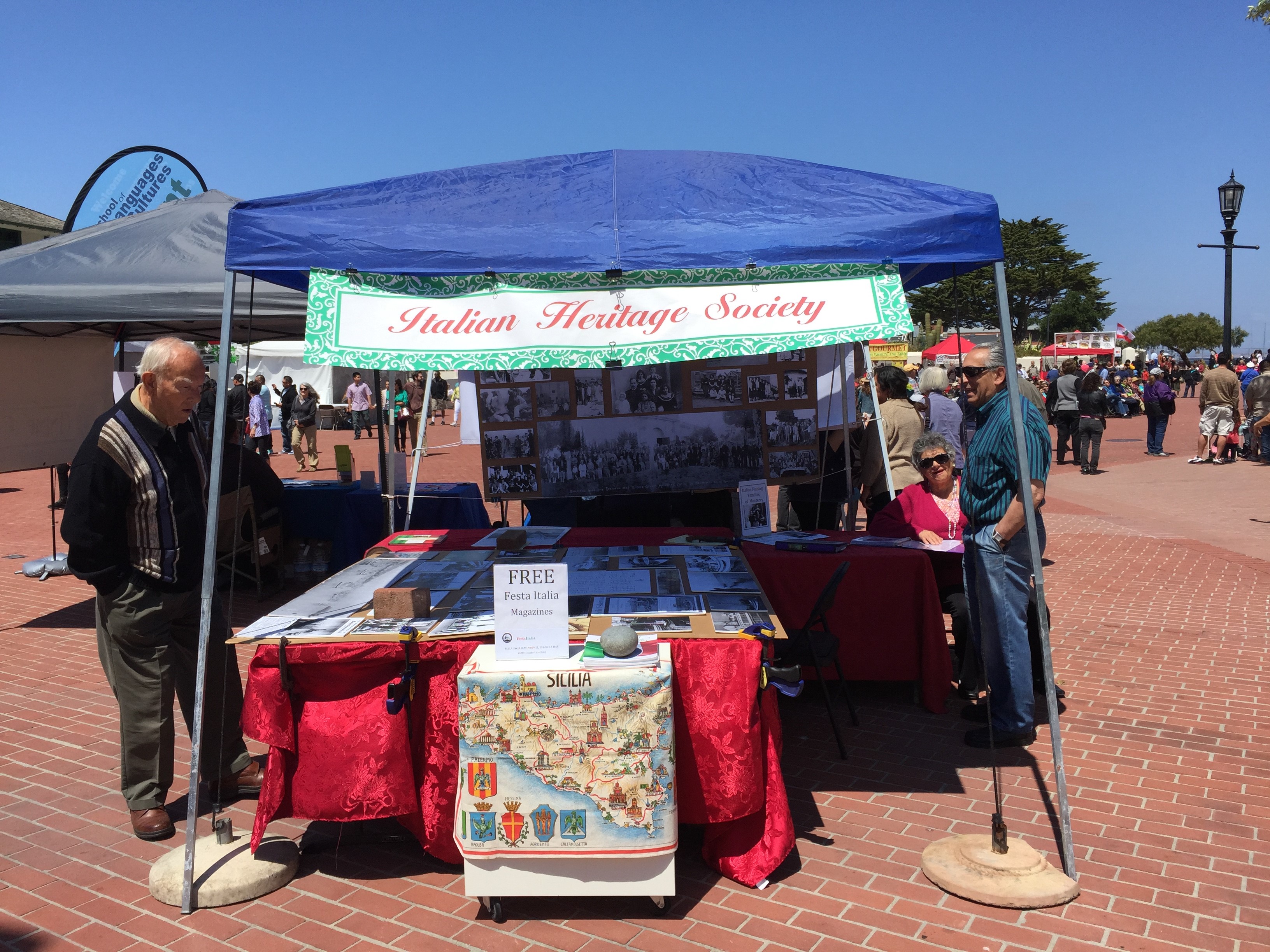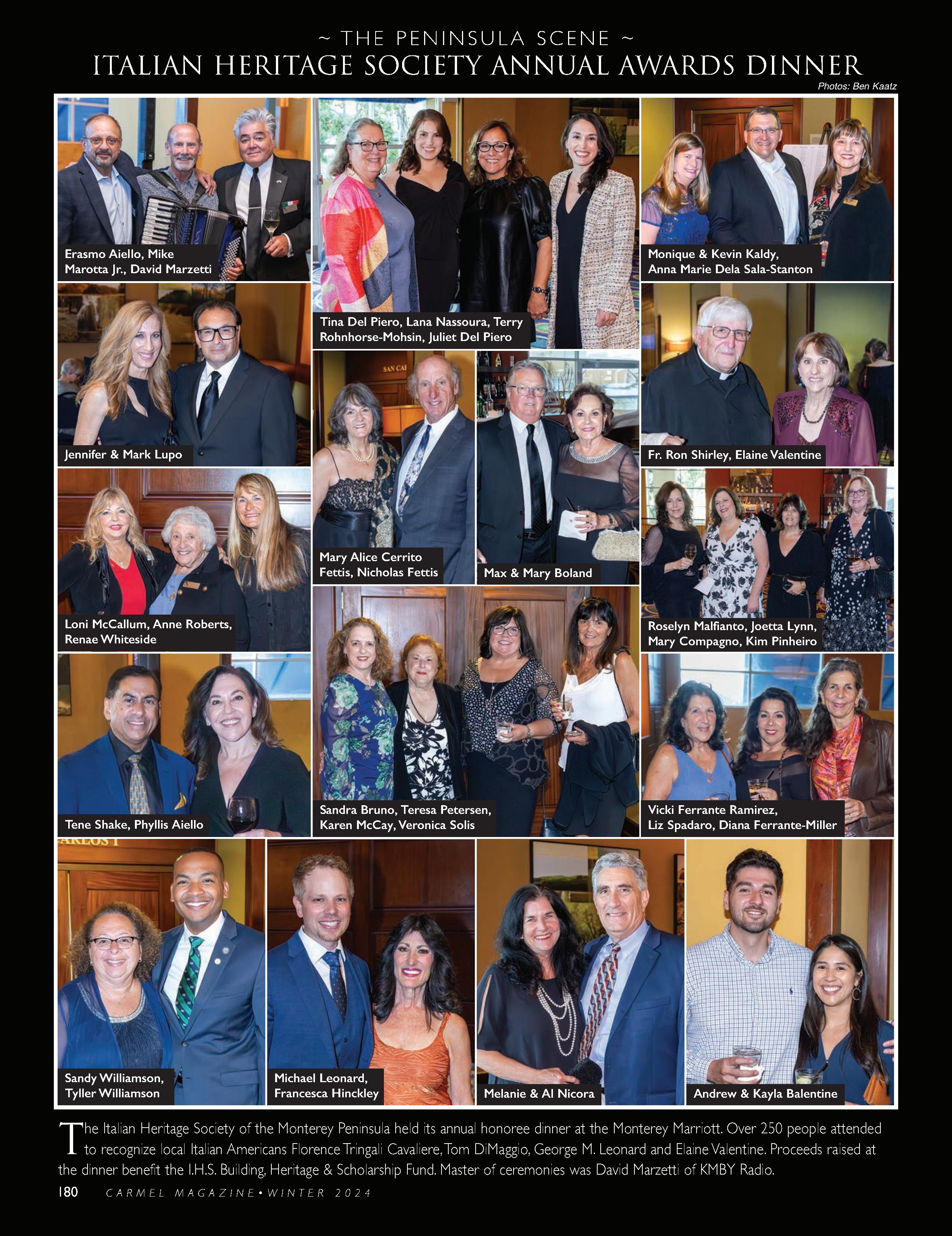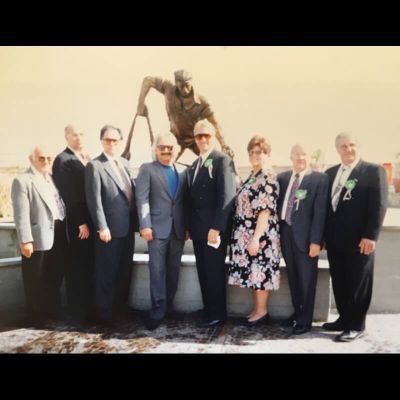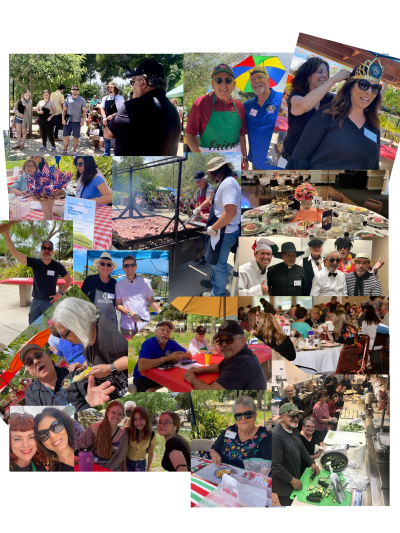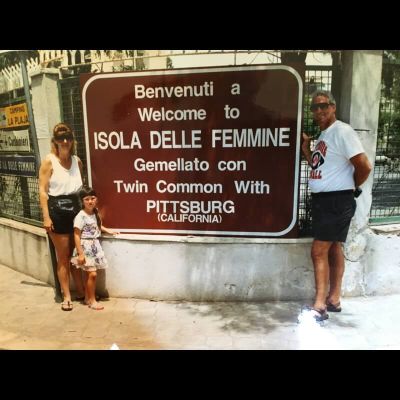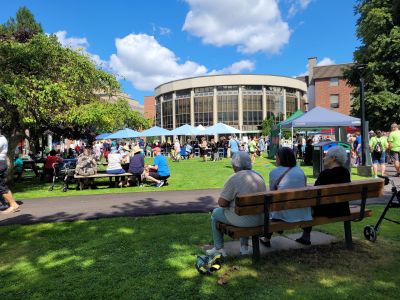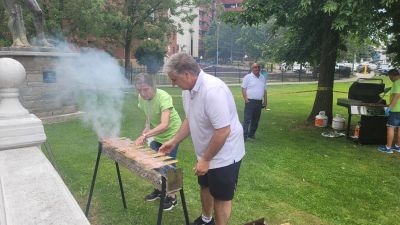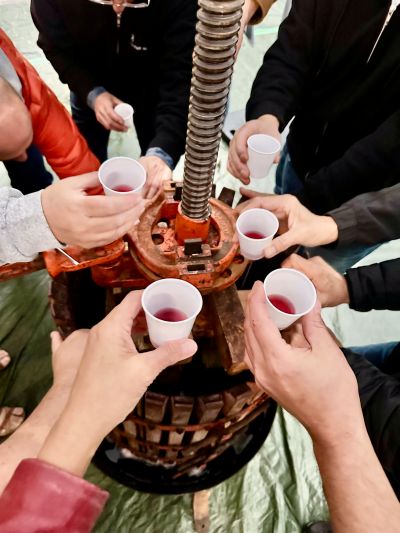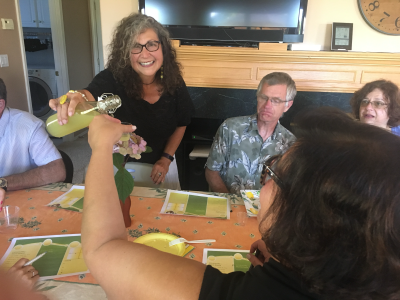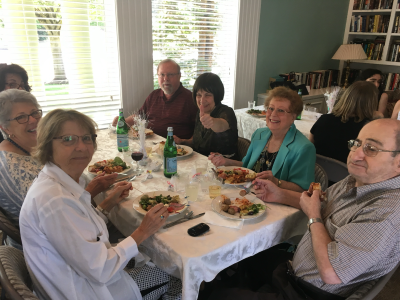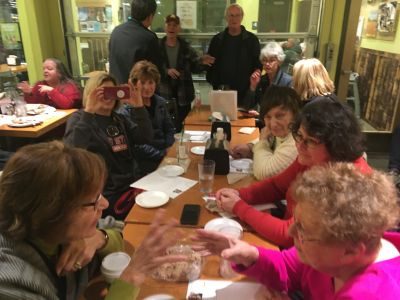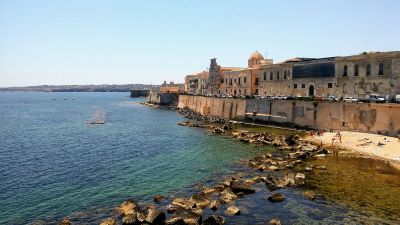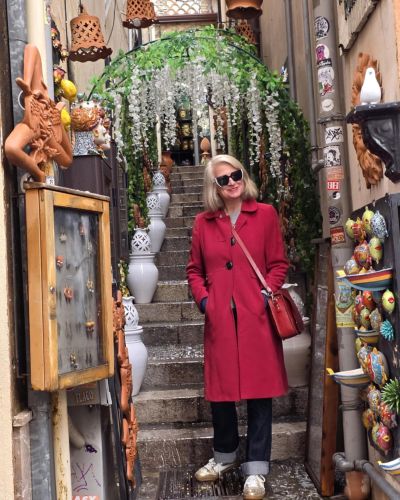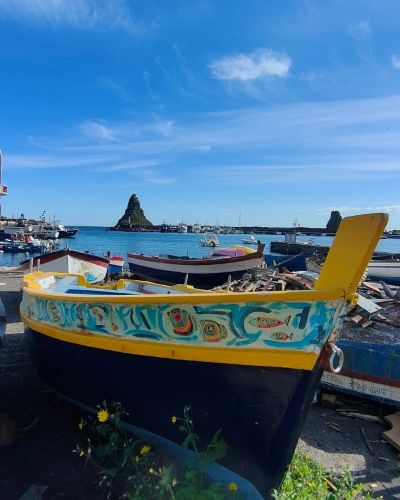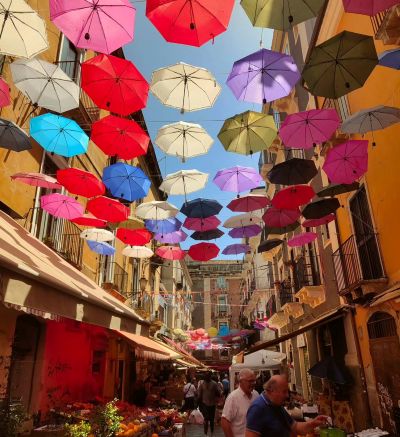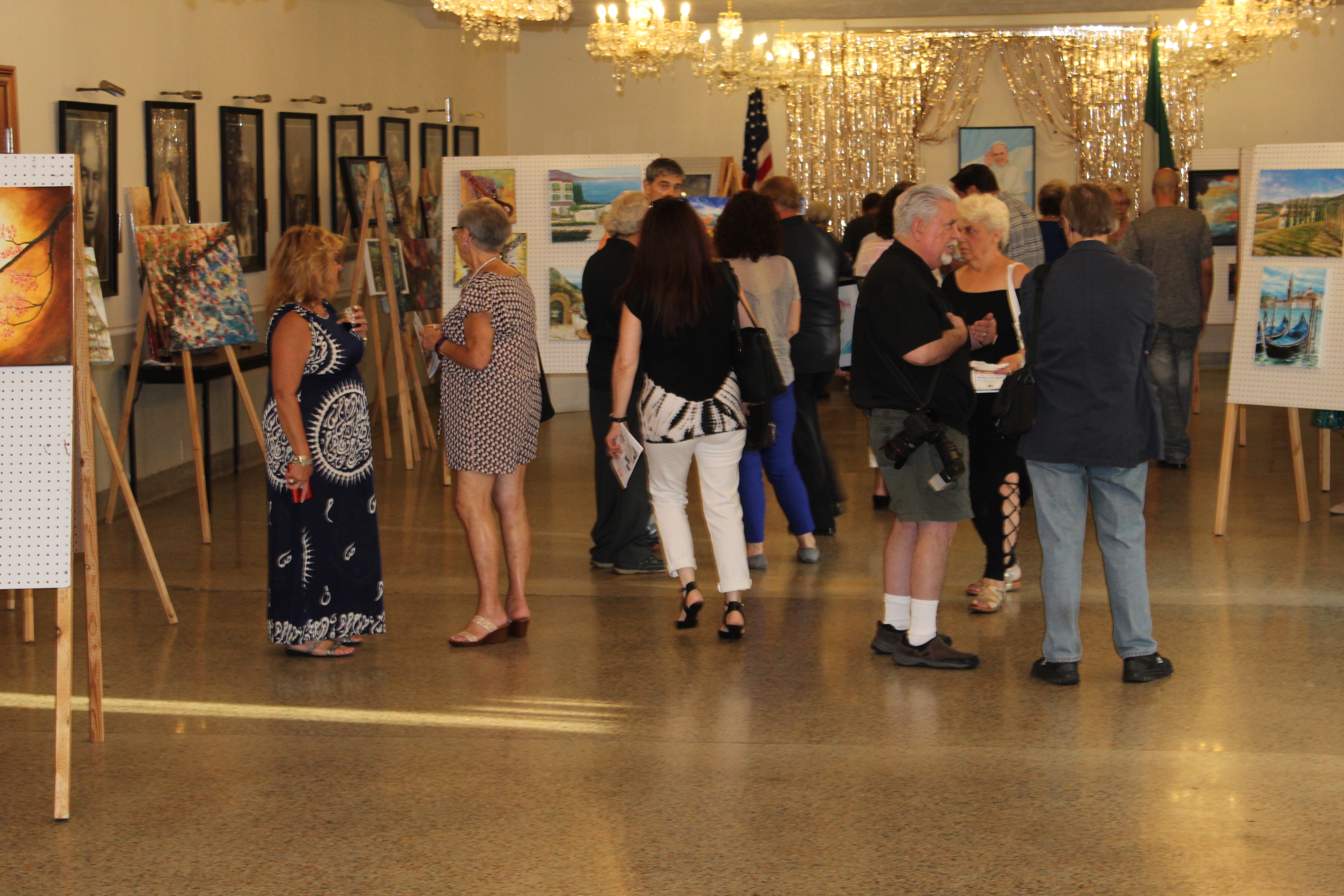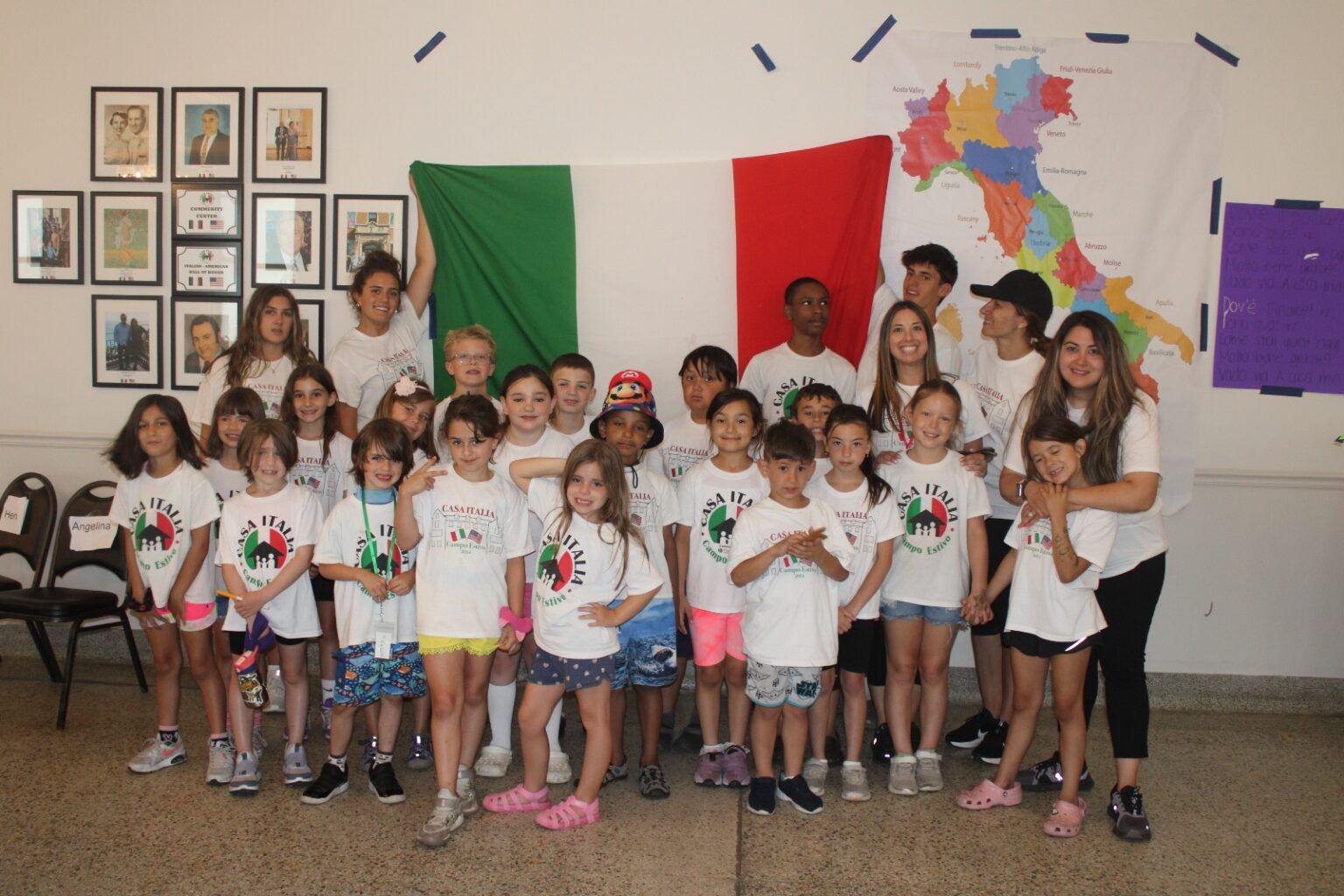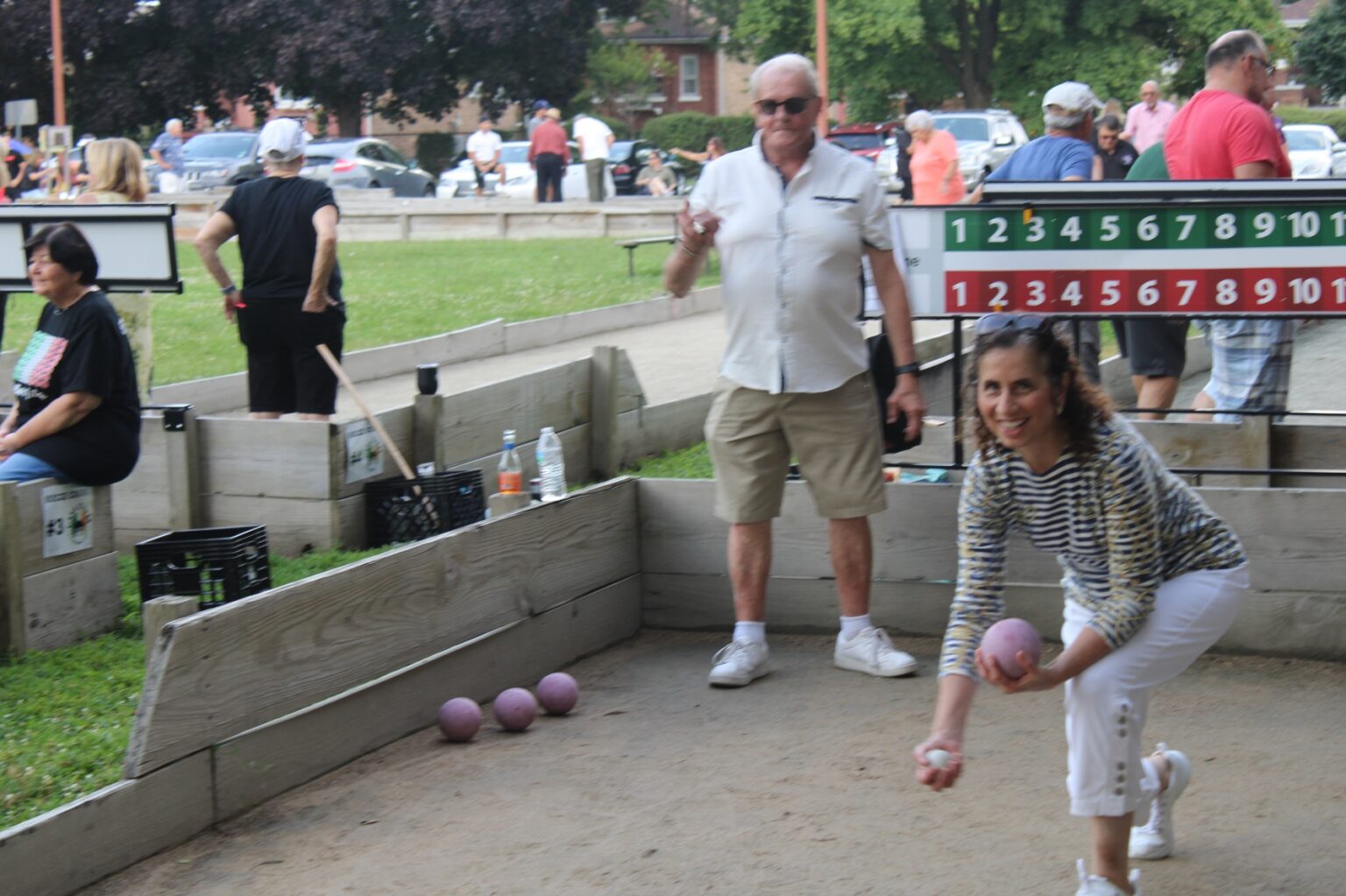Chris R. Vaccaro sits in front of a wall of plaques and a display case, where you'll find his nine Murrow awards, two Emmy statues, his high school letter, and a collection of bobbleheads. The Long Island, New York-based media executive, professor, and author is just as proud of his Italian heritage, which includes ties to Palermo and Giuliana, Sicily, and Turin in Northern Italy.
He's found a way to combine his passions for storytelling, sports, and promoting Italian culture in his daily work and community leadership. He founded the Italian American Heritage Society of Long Island and serves as the Executive Trustee of the Italian American Baseball Foundation and U.S. Press Officer for the Federation of Italian Baseball and Softball. He's also the Director of Graduate Journalism at Hofstra University's Lawrence Herbert School of Communication and Vice President/President-Elect of the Society of Professional Journalists. He's doing all that and more as he pursues a doctorate in leadership studies at Louisiana State University.
Chris took time to share more about his involvement, journey, and what he hopes to contribute to his community.
How and why did you found the Italian Heritage Society of Long Island?
There were these kinds of come-to-Jesus, lightbulb moments, like, "There are a lot of Italian organizations out there. Not all of them are working together."
Many of them are not focused on regional advocacy. Long Island is big—118 miles long and 26 miles wide, with millions of people. If it were a state, it would be the 12th biggest state in terms of population. So a lot is going on here, including one of the most heavily dense populations of Italian-Americans. I never felt that any single organization was rallying from a regional perspective.
I'm already very involved with the Italian-American Baseball Foundation and write for the National Italian American Foundation as their sports columnist. I felt inspired to create a regionally focused organization while respecting the Sons of Italy, the Knights of Columbus, and the lodges and smaller chapters that exist through other organizations.
I don't want to be some outsider coming in and working my way up the ladder. I don't need to do that at this point in my life and career. I'm already established. I am a leader. I have a vision. I know how to form nonprofits. I know how to advocate, educate, and build community. So I said, "Let me do it with my own organization."
That process started in 2023 and came to fruition in 2024 with some partnership agreements and the first inaugural Italian celebration. Now, we have so much more planned for this year and beyond. So it's been a lot of fun and a privilege to do it on behalf of our ancestors and millions of Italian Americans on Long Island.
Share some of the Italian Heritage Society of Long Island activities with us.
The biggest thing we've done is build the organization through partnerships—partnering with the Long Island Chapter of the American Association of Teachers of Italian and the Center for Italian Studies at Stony Brook University. Those are very important strategic steps to let people know we exist, do it with people in education and advocacy, and promote their language, heritage, and culture. That was a big part of 2024.
I immensely respect teachers. I have been a professor for many years at Hofstra. I've worked very closely with many school districts and school systems from a communications perspective. I felt that if I could connect with the teachers who teach about culture, heritage, and language, that would be a really important step. So, we did that from both the public school and higher education perspectives.
We hosted our first big Long Island Italian Celebration, where hundreds of people came out and had some incredible honorees. We celebrated who we are as a heritage group. We did it in October for Italian Heritage Month. We also hosted a bocce get-together last year from a fun social perspective. And I organized Italian Heritage Night with the New York Islanders.
This year, we're looking at specific social outings to bring together different businesses and partnerships. We're looking at doing the second annual Italian Celebration again in October.
We're looking at having events at a local vineyard, specifically with the American Association of Teachers of Italian. I hope to launch or form a bocce tournament for a Long Island championship this year.
Regionally speaking, we want to be the connective tissue of all Long Island groups here. I want people to come to us to see what else is going on everywhere. This year, we will launch a directory and database where you can find all of that. We're in the process of putting it all together. And believe it or not, a lot of stuff goes on, including data mining, calendar mining, and relationship management, to help make that happen.
You also co-host the Renaissance Minds podcast. Tell us about that.
The idea came from Silvia Davi, an Italian American Heritage Society of Long Island executive board member and somebody I admire greatly. She is a woman who cares deeply about her heritage and her family. We have so many ideals and values that align.
She reached out on LinkedIn about 18 months ago with similar thoughts and wanted to get involved. And I said, first of all, "We'd love to have you on board." Shortly after, she told me about the Renaissance Minds blog she has kept for many years and uses as a cross-pollinator of content. I said, "Hey, we should turn that into something with a podcast." She had the idea as well.
And I said, "I am a professor at Hofstra. I think I can get us on 88.7 FM, and we can probably film it and record it in a studio there."
It didn't take long for that to come to life. So now we have half a dozen episodes out there and another half a dozen or so in the can that will be published over the coming weeks and months.
It's a wonderful platform to educate people about Italian heritage and culture, but through complex thinkers and doers who have done things differently than others in the world—business people, doctors, lawyers, professors, writers, media folks, and entrepreneurs. We don't have one specific type of person. The person we speak to is Italian or Italian American. They're passionate. They're doing something unique and something that, again, we could educate our audience on.
It's been a lot of fun. Every time we have one of these conversations, we learn something, and then we know they're good people we'd like to tie to our brand. And Renaissance Minds is sponsored and underwritten by the Italian American Heritage Society of Long Island.
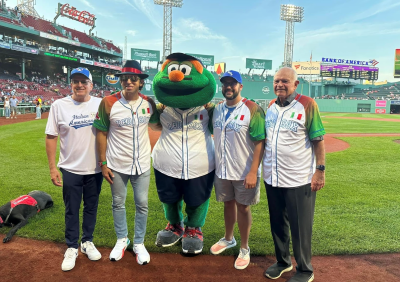
IABF at Fenway Italian Night
Share more about the Italian American Baseball Foundation, for which you serve as Executive Trustee.
IABF was founded by Joseph Quagliano and Carmine Gangone, friends of mine who have worked hard to make their vision come true. Five years ago, they brought me into that vision. Since then, I've helped them grow it, telling the story, managing the marketing and communications, creating many relationships, building Italian Heritage games across the country, and amplifying what we do with our annual gala.
It's a lot of fun because we love being Italian, obviously, but we also love baseball. Many people in Italy feel the same way, and we're trying to amplify their message and their need for resources. The ability to bring those Italians to America to play is really special. We partnered with Francisco Cervelli and the folks in Grosseto, Italy, to launch the Francisco Cervelli-Italian American Baseball Foundation Academy. We do camps and clinics, ensuring the youth hear from incredible coaches and have a beautiful experience. We're getting just as much out of it as they are because it's a profound moment for us to be able to stand on a baseball field in Italy. The history is such that American servicemen brought the game to Italy during World War II. They played it there when they had time, and after the war, the game has stayed, and the memory of those servicemen lives on because baseball is America's pastime.
So there's a really fun full circle. Every time we're there, we see the history and how we're building for a brighter future that impacts Italian kids, which is what it's all about. Could our ancestors have ever imagined we would be traveling back to their native land to teach and coach and build relationships? They could have never imagined that. I can't even put into words how special it is when we're there on that soil. And we do that because of all the work we put in for fundraising, the events we host, and the relationships we've created here in America.
Describe your role as the U.S. press officer for the Federation of Italian Baseball and Softball.
That came about because of my work and dedication to the Italian American Baseball Foundation. We've formed these relationships over the last several years, and based on my knowledge of the game, my connections in media and sports in America, and my pure love and devotion to all things Italian baseball, they tapped me to work with their press office.
A lot of work involves translating their Italian stories into English versions and posting them on social media, primarily through IABF. We're all connected in many ways, informing America about what's going on in Italy, whether I'm writing about it or posting about it on social media.
The role will be amplified, especially during 2026, when the World Baseball Classic happens and Team Italy comes to America to play their first-round games in Houston. I'll be a very valuable asset on the ground before, during, and after that really big international tournament, helping with media, content strategy, and total promotion of the Italian team.
Incredible players, coaches, and front-office executives are helping build that roster and will eventually facilitate playing and coaching. I will be a storyteller with them. I will be some of the glue that could help bring people together and understand what they're doing, whether working with Major League Baseball, other partners in the United States, or sponsorships and development—however I can help.
We have a really fun stretch ahead of us. After 2026, we set our sights on the 2028 Olympics, which will be in Los Angeles. It's going to be a unique few years, for sure.
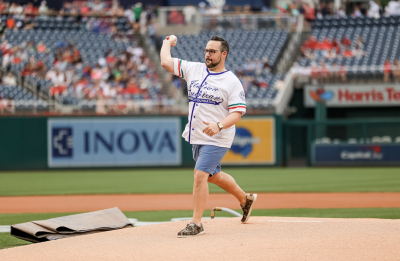
Chris R. Vaccaro throws the first pitch at a Washington Nationals game in 2023.
You threw the first pitch at a Washington Nationals game. Tell us about that experience.
That was a product of my coordinating the Italian Heritage games across Major League Baseball. Through the Italian American Baseball Foundation, one of the key endeavors I have built and executed is reaching out to every Major League club and many Minor League clubs to facilitate the Italian Heritage Games.
Those games could include several marketing and promotional activations, whether it's a giveaway item that somebody gets when they walk into the stadium, like a jersey with some sort of Italian rhetoric, markings, or logos, music played in the stadium, members of our board bringing out the lineup card, or, in my case, throwing out the first pitch.
It will forever be one of the coolest moments of my life, especially from a sporting perspective. And I've done a lot of unique things in sports. I threw a strike right down the plate; no pressure at all! I was practicing the week before with my son and my brother in my backyard. And the really special aspect of it was after I threw the strike, after everyone's cheering, I walked off the mound doing the Italian hand gesture and smiling. It was a really, really fun moment.
The bigger connection there for us is that the general manager of the Washington Nationals is Mike Rizzo, a proud Italian American whom we have honored as our executive of the year with IABF at our annual gala. He has helped roll out the red carpet, but we've also sold thousands of tickets to those games. A percentage of the sales for the Italian Heritage Games goes towards the IABF Scholarship Fund, which helps get Italian Americans to play college baseball or softball.
It's a full circle, a cycle of doing good, making an impact, enhancing the cultural experience for people who want to come here, and educating Americans about what is going on in Italy through baseball and softball. It always revolves back to the bigger picture.
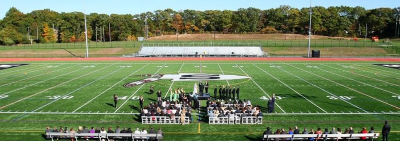
Chris R. Vaccaro was married on the Sachem High School football field.
Sports play a large role in your personal life and relationships. You were married on the Sachem High football field. Share that experience.
We were married on the football field. My wife, Theresa, and I are very involved in our community on Long Island. Sachem is the second-largest school district in New York State. It's also not just a town. Several towns were centralized from an educational perspective in 1955 to form Sachem. It is a massive school district—2000-plus employees, 13,000-plus students, two high schools, 10 other buildings, and many elementary schools.
I'm a product of it. I grew up there, and I went there. We live here, and we raise our children here. They attend the same schools I attended. I am the district historian. I am the president and founder of our alumni association and our education foundation. I run our Hall of Fame. I founded and run our Hall of Honor. I provide speakers. I speak on certain topics; we bring alumni back.
We're talking 11 years ago (12 years ago in October). My wife said, "Hey, wouldn't it be unique if we got married on the field?"
She brought it up. I always like to make that very clear. It wasn't my idea, but, of course, I jumped at it, and we made it happen. And we are the first and only people to marry at Fred Fusaro Alumni Stadium.
It was tremendous. We had seats on the turf at the 50-yard line (it's a turf field), and we walked out of the Native American headdress that the team ran out of. We ran out with smoke machines and AC-DC's "Thunderstruck" playing as I walked down the aisle.
We had mini football giveaway items for attendees. We created a game day program modeled after the same design as when they dedicated the field's name to our legendary head coach. There is a lot of connectivity between our history, community culture, and what we did that day. It was a special moment for my wife and me and the community.
Which recognition has been the most meaningful to you personally among your many honors and awards, and why?
The Emmy Awards are very special because there's tremendous significance in winning those in broadcast and the Murrow Awards, which I've also won. They're all team awards based on my leadership and the teams I oversaw at News 12, a New York, New Jersey, and Connecticut broadcast outlet. Those are really important. The awards I've gotten from the Italian American community, the Dante Award from the Italian American Teachers Association, and the Leadership Award from the Italian Language Foundation are special because they are about way more than just me. I wouldn't be here if it weren't for my ancestors who came here not knowing what they were getting into when they got on those ships and came to America. I always talk about how I am a product of what they sought. I am living the American dream.
While those are really important, the Beacon Award I received from the Ellis Island Honors Society is tremendously important and meaningful. It speaks to the foundation that was set up in honor of the place where my ancestors went. They went to Ellis Island, got off the ships there, and were registered there. To have received recognition for my work in culture and heritage is profound.
I'm in the Long Island Journalism Hall of Fame, and IABF was inducted into the New York State Baseball Hall of Fame as an organization. I'm also in the Sachem Athletic Hall of Fame for contributing to our community. All of those things are so important.
It's almost difficult to put into words, but the ones related to my heritage define my blood, my existence, and my overall being.
I'm lucky. I put in the work and am happy to get honored, but when I'm honored, it's really about the people I do the work for. It's really about my children, leaving them a legacy that they should look up to, aspire toward themselves, and be proud of our name. That's what it's all about.
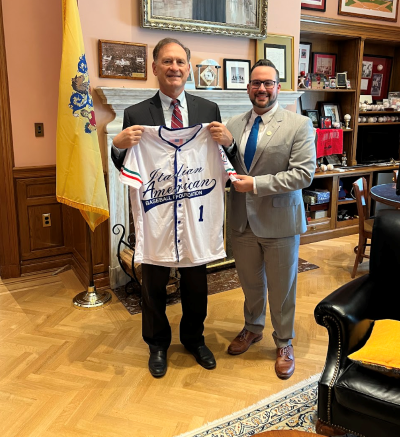
Supreme Court Justice Samuel Alito with Chris R. Vaccaro
How do you hope to influence future generations in media, education, and cultural preservation?
The most important thing is ensuring we don't forget who we were or are as a heritage group, a community, or an industry. In everything I do and all the hats I wear, I'm huge on honoring the past and inspiring the future. I mean that. I try so hard to make sure we paint a vivid picture of our history and ensure that the current generation and future generations concurrently understand where they came from.
There's a story to be told. They need to understand it. It's not just what's happening to them right now. We got here for a reason. Let's understand that, learn from it, embrace it in almost all cases, and grow from there. I firmly believe we can't get to where we're going until we understand where we were.
That's my personal thesis. That's how I build my organizations and run nonprofits. There's a connective tissue there. It's also being very clear about what we're trying to do. It's having a story and making sure everyone understands it. That's where my background in media comes into play. We can tell stories differently, have a strategy, and educate on social media with video, words, long-form storytelling, long-form features, and audio.
My background in media—both in production and leadership—allows me to tell the stories of the people and places I'm associated with. And I do that. I put all those pieces together, and I am constantly promoting what I'm doing, not to promote myself but to promote the stories and the reason why we're doing it.
If you enjoyed this article, consider subscribing to my newsletter for more content and updates!

